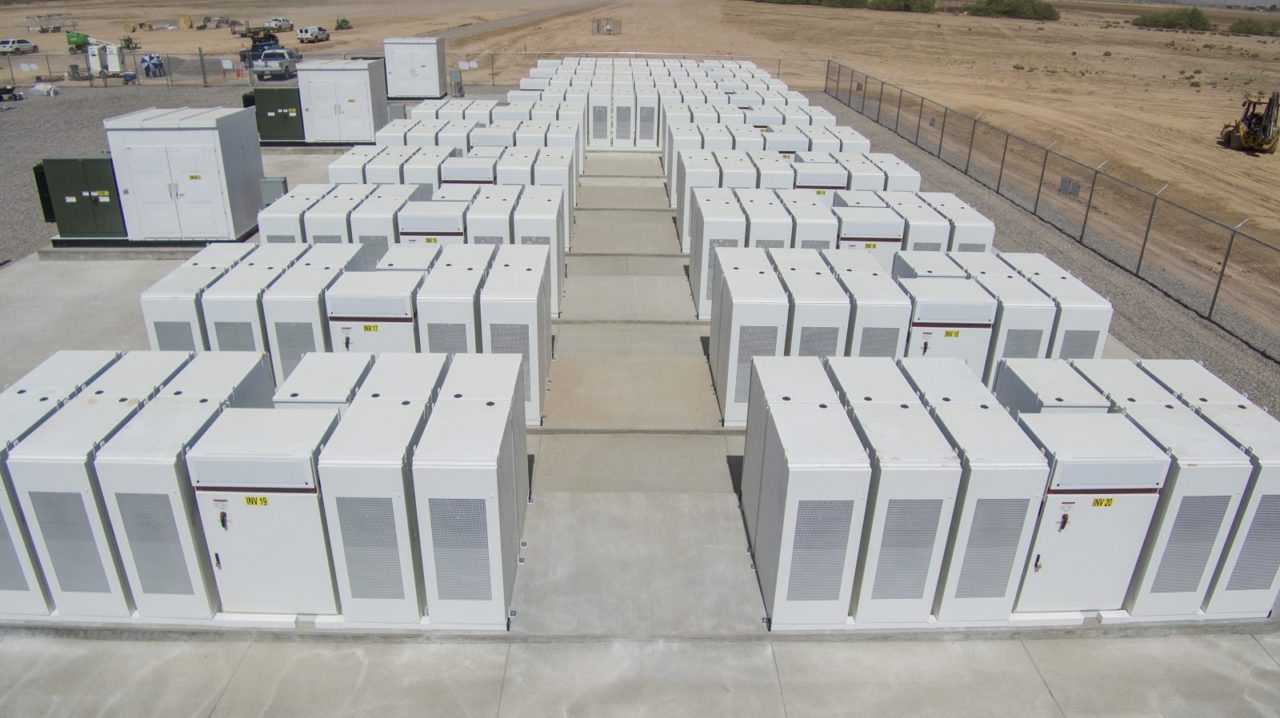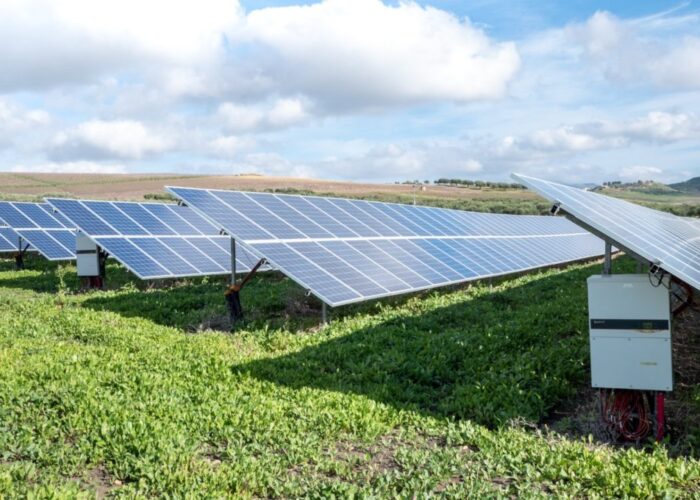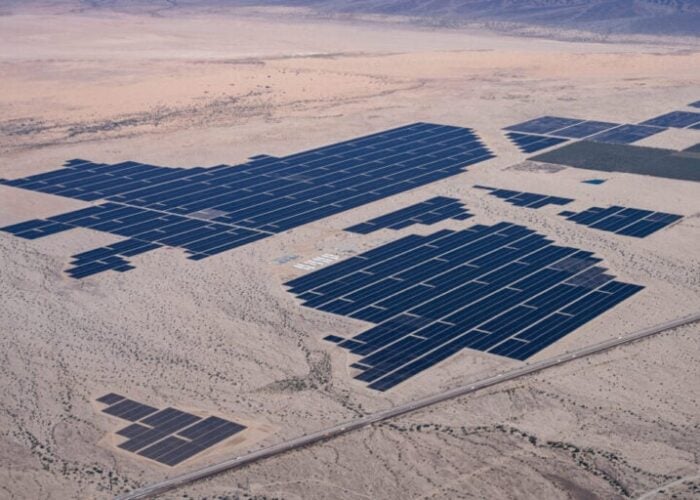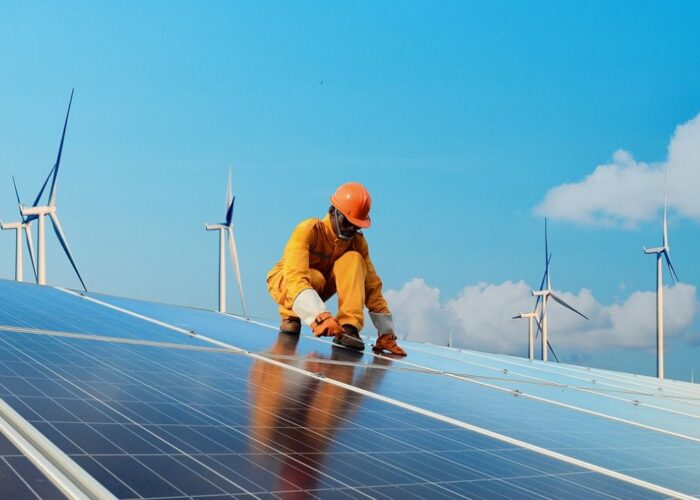
US policymakers should explore the possibility of scrapping the investment tax credit (ITC) for solar PV and instead offer fiscal support for battery storage systems, an energy finance executive has said.
Andrew Redringer, managing director and group head of utility and alternative energy at KeyBanc Capital Markets, said the current ITC for both solar and wind “needs to go away” as the policy is “artificially lowering the price of the power”.
Unlock unlimited access for 12 whole months of distinctive global analysis
Photovoltaics International is now included.
- Regular insight and analysis of the industry’s biggest developments
- In-depth interviews with the industry’s leading figures
- Unlimited digital access to the PV Tech Power journal catalogue
- Unlimited digital access to the Photovoltaics International journal catalogue
- Access to more than 1,000 technical papers
- Discounts on Solar Media’s portfolio of events, in-person and virtual
Speaking at the Solar & Storage Finance USA (SSFUSA) event, organised by PV Tech publisher Solar Media, Redringer said that projects can now stand alone without the ITC, given where costs have come.
“I’m all for ITC for battery, but I think the ITC has served its purpose for wind and solar, and it’s causing an unlevel playing field for some developers… the ones who have tax capacity are getting an unfair advantage.”
The current ITC permits solar system owners to recoup 26% of a project’s total cost from their taxes, having dropped from the previous 30% rate on 1 January. The credit is set to decrease to 22% next year, and as of 2022 the residential level drops to zero and the commercial credit falls to a permanent 10% level.
But there have been growing calls for the ITC to be extended, either back at the 30% rate or frozen at the existing 26% for a further period of time. A long-term extension of the ITC was among the key policies put forward by the Solar Energy Industries Association (SEIA) in a new document aimed at providing guidance for the incoming Biden administration and new members of Congress. The trade body describes the ITC as the “single most effective current policy available to encourage clean energy deployment”.
Despite hopes that a standalone ITC for energy storage would come into place this year, current laws mean storage units are only eligible for the credit if installed at the same time as a solar energy project, meaning retrofits miss out.
SEIA says the US needs to add energy storage to increase the availability of solar as a variable resource if the country is to reach its goal of 20% of electricity generation from solar energy by 2030. With more than 2 million solar installations already in place in the US, the association says energy storage retrofits and increased deployment in general are needed.
US Energy Storage Association CEO Kelly Speakes-Backman has said the need for a standalone storage ITC is greater than ever, due to the impact of coronavirus on the industry. She told sister site Energy-Storage.news last year that enacting a standalone ITC for energy storage would have the biggest impact for the industry than any other proposal on the table today.
In a separate panel session held during the event yesterday, Roth Capital's Philip Shen said that while it looked increasingly likely that an extension of the ITC could be forthcoming, the addition of an ITC for standalone storage would be considerably harder to pursue unless the Democrats can regain control of the Senate, with two run-off elections to take place in Georgia in early January.
Storage potential in ERCOT
The ability of standalone battery projects to provide ancillary services and support US utilities was noted during the SSFUSA event by Kevin Pollo, vice president of energy supply and market operations at CPS Energy. He said the company is seeing a lot more standalone battery projects in the Electricity Reliability Council of Texas (ERCOT) area. “I think with the ability of the battery to respond quickly, they’re well positioned to provide ancillary services and respond to any of those quick price signals.”
The Texas-based utility currently has just one PV-plus-storage project, located in San Antonio, that features a 5MW solar facility co-located with 10MW / 10MWh of lithium-ion battery energy storage. When the project was announced in 2018, CPS said the combination of the two technologies is “a key enabler” to achieve a zero emissions portfolio.
Pollo said the facility allows for solar shifting: “We’re able to take some of the solar that we don’t need during the early morning hours or midday when we have some excess generation on our grid, charge our storage system and then be able to use that across our evening peak or late afternoon peak and to help serve load. As a utility with load to serve, that’s one of the key things we’re looking at.”
CPS Energy is on the track to ramp up its storage capabilities after announcing a request for information process earlier this year to help it explore the addition of up to 900MW of solar, 50MW of battery storage and 500MW of “new technology solutions” to supplement ageing power generation capacity. Pollo said the 500MW of firming capacity additions “may very well have” a battery component.







